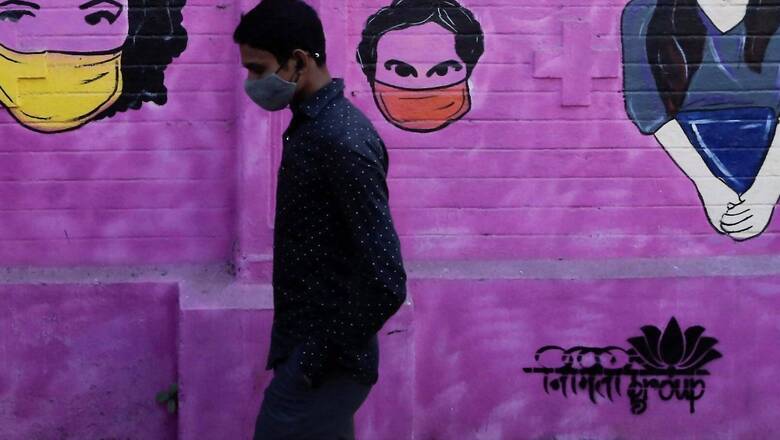
views
Though India has not spotted any worrisome trend due to the detection of new Omicron variants, people must not lower their guard against Covid, health experts told News18.com.
India is closely monitoring the behaviour of the newfound variants of Omicron – BA.4 and BA.5 – as they are suspected to be more infectious than the previous versions.
Dr NK Arora, head of the National Technical Advisory Group on Immunisation (NTAGI) — an apex panel that takes critical decisions on use and deployment of coronavirus vaccines in India — told News18.com that “the newfound Covid-19 variants, BA.4 and BA.5, could be highly transmissible”.
“India is presently in the middle of the third wave. What we have learnt about Covid-19 is that the different variants will drive different waves. Right now, Omicron is driving the third wave in India,” he said.
According to the studies and reports from other countries, Arora said, BA.4 and BA.5 have a “growth advantage”, which means that these variants are highly transmissible when compared to others from the same lineage.
“This means we need to watch the behaviour of these variants more closely for the next coming months. While we don’t expect any new wave for the next five to six months, we need to keep all possible arms and ammunition ready if any new variants come up across the globe,” he said.
While the government is closely monitoring the trends of hospital admissions and deaths to assess the severity, so far there is no cause for concern, said Dr Samiran Panda, deputy director general, Indian Council of Medical Research (ICMR).
“The Indian government is not taking any variant or subvariant of coronavirus timidly. However, the occurrence of new variants and lineages must not cause panic,” he said, adding that there is no indication that the infections are rising due to increased transmissibility. “The requirement for hospitalisation also remains very low. However, strict vigilance and precaution is the only key.”
Similarly, Dr Anurag Agrawal, ex-director of CSIR-IGIB and dean of biosciences and health research at Ashoka University, believes that “we do need to monitor but I do not perceive any significant threat to the healthcare system from these variants. This is because of our recent BA.2 wave and high vaccination coverage of high-risk groups.”
While India, in the Omicron wave, had mostly the BA.2 variant causing infections, South Africa had BA.1 as the dominant variant in its wave.
Cross-immunity to BA.4 and BA.5 has been found to be lower for BA.1-recovered than BA.2-recovered patients.
So, at antigen level, BA.4 and BA.5 are similar to BA.2 but have substantial differences compared to BA.1. Agrawal expects the risk of large BA.4 and BA.5 outbreaks to be low in regions such as India, where BA.2 caused large waves.
Read all the Latest India News here




















Comments
0 comment